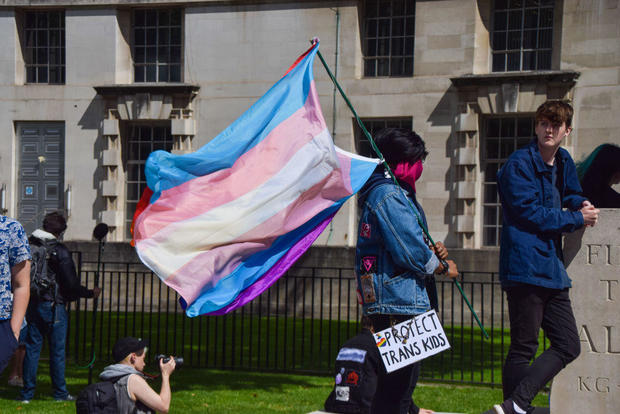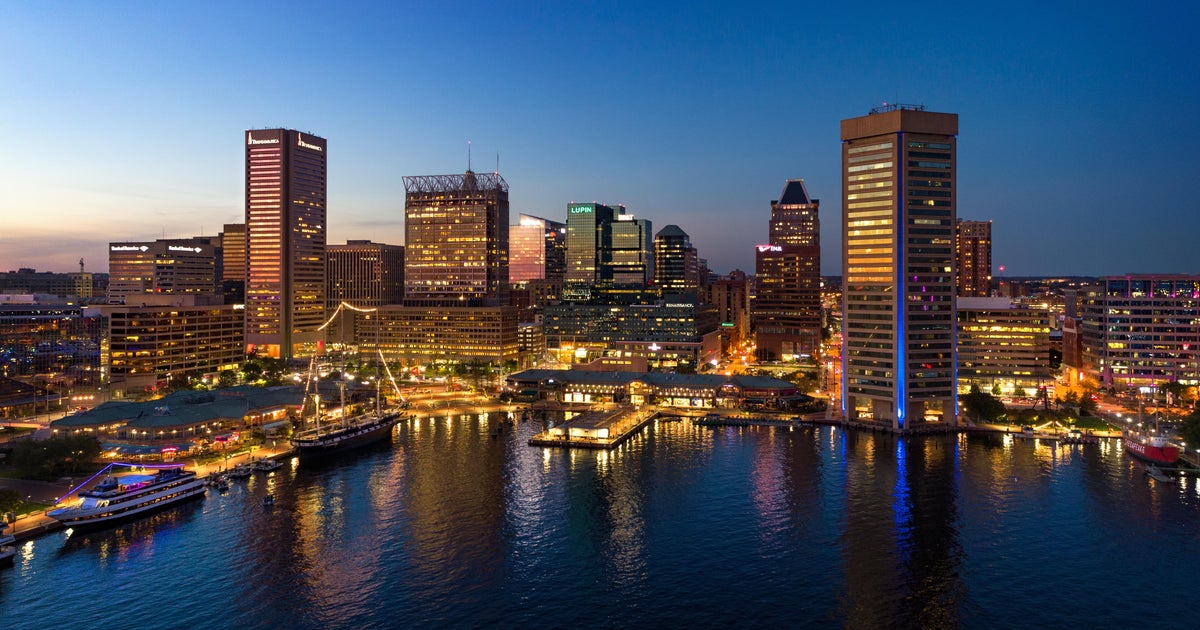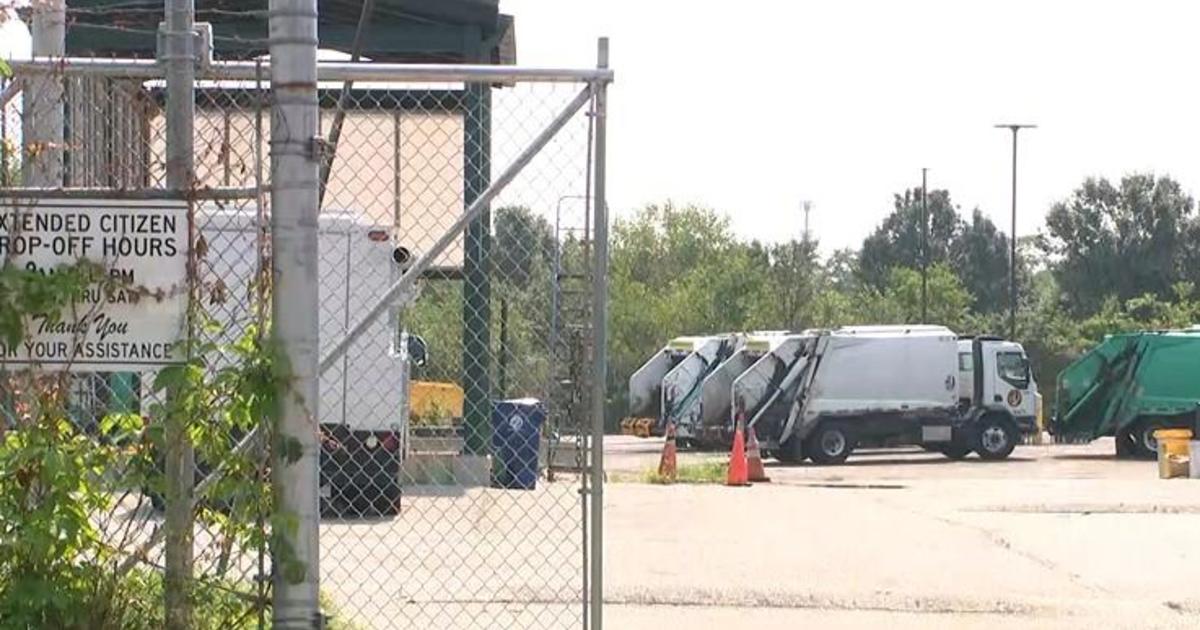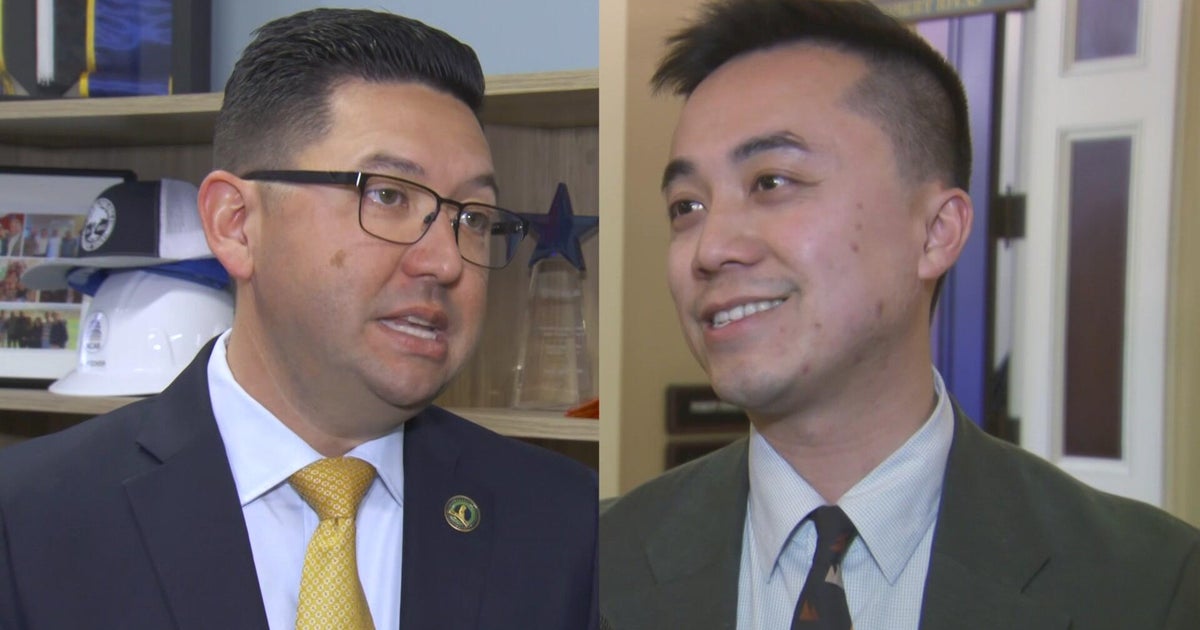British government revisits bill banning "conversion therapy" with new protections for trans people
Government leaders in the U.K. pledged on Tuesday to revisit a piece of proposed legislation that would outlaw "conversion therapy" if passed — this time, with amended protections for transgender people in addition to other LGBTQ residents of England and Wales.
In a statement, Michelle Donelan, British secretary of state for digital, culture, media and sport, said members of Parliament intend to publish a drafted version of the bill "shortly," and will present the draft for pre-legislative review by a joint committee during the current parliamentary session.
"We recognise the strength of feeling on the issue of harmful conversion practices and remain committed to protecting people from these practices and making sure they can live their lives free from the threat of harm or abuse," Donelan said in the statement, which noted that the bill aims to prevent children from being exposed to "harmful online content" related to conversion practices while also banning the practices themselves.
"It is right that this issue is tackled through a dedicated and tailored legislative approach, which is why we are announcing today that the Government will publish a draft Bill which will set out a proposed approach to ban conversion practices," the statement continued. "The Bill will protect everyone, including those targeted on the basis of their sexuality, or being transgender."
Conversations pushing to ban "conversion therapy" — pseudo-scientific practices now commonly recognized as harmful, which can involve psychological and sometimes physical trials that attempt to change someone's sexual orientation, gender identity or gender expression — in the U.K. have existed for years in public forums and within Parliament. After the results of a government-led survey found that 5 percent of LGBTQ people had been offered conversion therapies, British leaders said in 2018 that they would "eradicate the abhorrent practice" as part of a $5.9 million effort to create a safer and more inclusive society for LGBTQ people.
At the time, then-Prime Minister Theresa May said "no one should ever have to hide who they are or who they love," while the government developed a 75-point plan to increase inclusivity for people who are LGBTQ. Although lengthy proposals to prohibit promoting or conducting conversion practices have been drawn up since then, none were passed, and none included language applying the ban on conversion to transgender people.
"This is a complex area, and pre-legislative scrutiny exists to help ensure that any Bill introduced to parliament does not cause unintended consequences. It will also ensure that the Bill benefits from stakeholder expertise and input from parliamentarians," Donelan said in her statement Tuesday.
"The legislation must not, through a lack of clarity, harm the growing number of children and young adults experiencing gender related distress, through inadvertently criminalising or chilling legitimate conversations parents or clinicians may have with their children."
The extent to which conversion practices targeting LGBTQ people are presently operating in the U.K. is not known, as the government survey that prompted initial discussions about a ban is the most recent of its kind, according to the British government. The LGBTQ media advocacy organization GLAAD has noted that, because "conversion therapy" has come under global scrutiny in recent years, some providers now use other phrases to describe the same practice.
In a website post describing "conversion" or "reparative therapy," the U.S.-based LGBTQ advocacy group Human Rights Campaign notes that "such practices have been rejected by every mainstream medical and mental health organization for decades, but due to continuing discrimination and societal bias against LGBTQ people, some practitioners continue to conduct conversion therapy."
"Minors are especially vulnerable," it adds, "and conversion therapy can lead to depression, anxiety, drug use, homelessness, and suicide."








